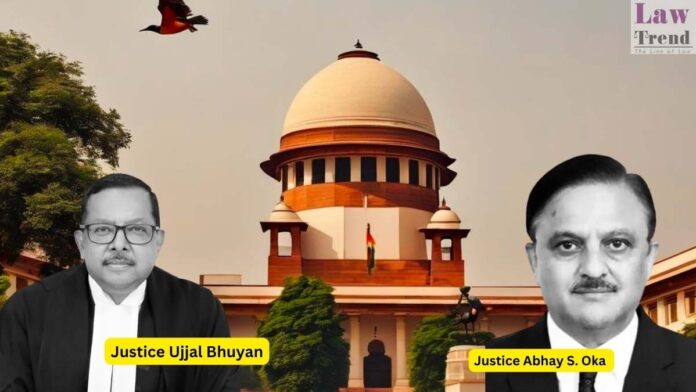The Supreme Court of India, in a landmark judgment delivered in Suo Motu Writ Petition (Crl.) No. 4 of 2021, has held that remission of sentences must be governed by clear policies and cannot be exercised arbitrarily. The bench comprising Justice Abhay S. Oka and Justice Ujjal Bhuyan emphasized that the rights of convicts under
To Read More Please Subscribe to VIP Membership for Unlimited Access to All the Articles, Download Available Copies of Judgments/Order, Acess to Central/State Bare Acts, Advertisement Free Content, Access to More than 4000 Legal Drafts( Readymade Editable Formats of Suits, Petitions, Writs, Legal Notices, Divorce Petitions, 138 Notices, Bail Applications etc.) in Hindi and English.




